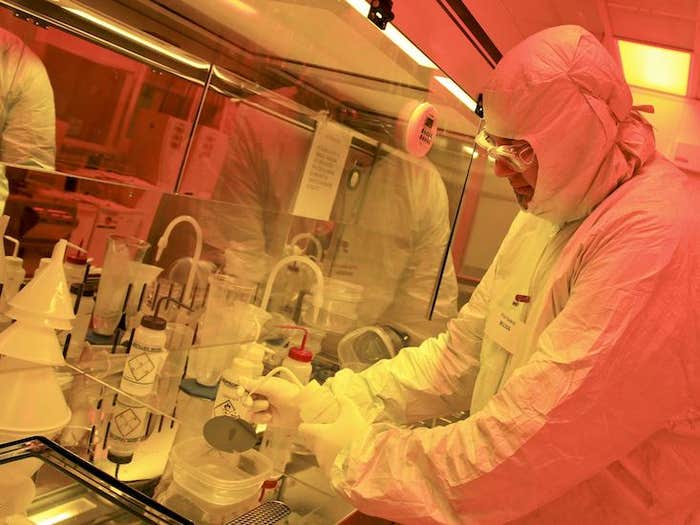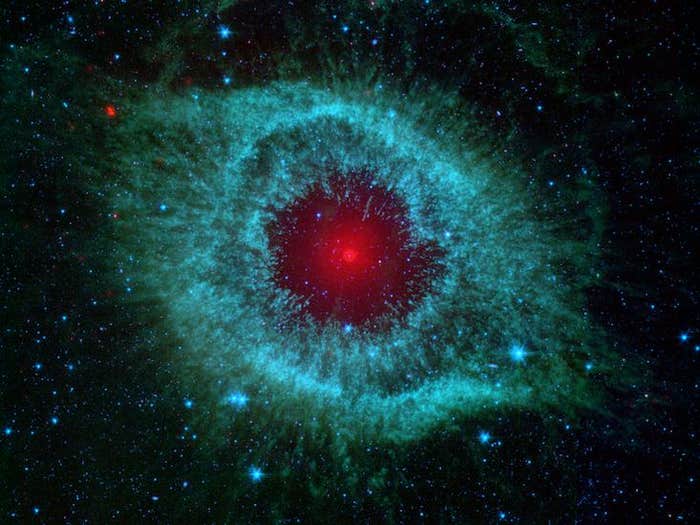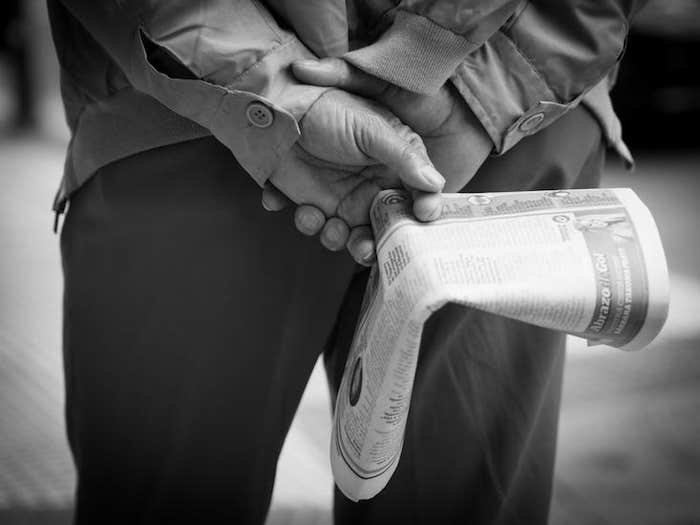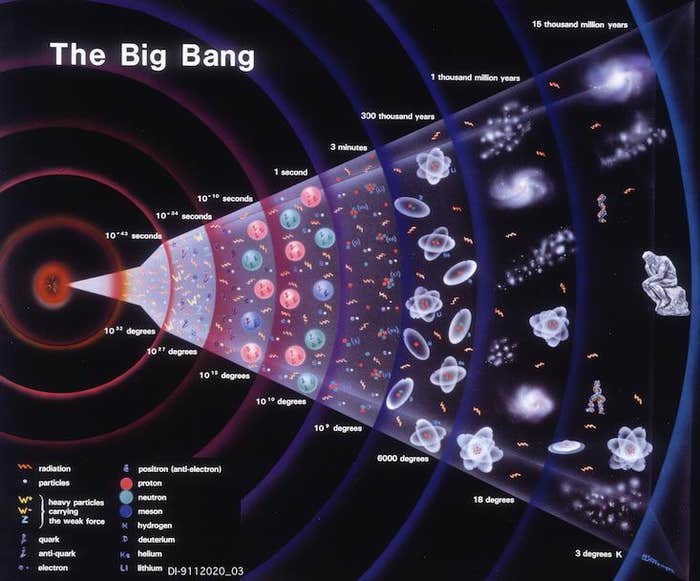Issue_45
29 articles-
Computers Beat Humans at Poker. Next Up: Everything Else?
Nautilus Members enjoy an ad-free experience. Log in or Join now . Over the span of 20 days early this year, artificial intelligence encountered a major test of how well it can tackle problems in the real world. A program called Libratus took on four of the best poker players in the country, at […] -
How Classical Cryptography Will Survive Quantum Computers
Quantum Lab: Scientists are fabricating quantum photonic circuits—consisting of waveguides and other elements—to manipulate single photons for future quantum communications and processing.Oak Ridge National Laboratory / Flickr Nautilus Members enjoy an ad-free experience. Log in or Join now . Justin Trudeau, the Canadian prime minister, certainly raised the profile of quantum computing a few notches […] -
How Should Society Judge a Defendant with a Brain Tumor?
After a visit from one of his patients in March, 1966, the psychiatrist Maurice Heatly noted, “This massive, muscular youth seemed to be oozing with hostility as he initiated the hour with the statement that something was happening to him and he didn’t seem to be himself.” Nautilus Members enjoy an ad-free experience. Log in […] -
Why We Love to Anthropomorphize Physics
Family Physics” may be the best episode of Public Radio’s long running show, This American Life. Its premise was simple. Import key concepts from the realms of quantum mechanics and cosmology and use them to illuminate the everyday world of parents, kids, and their interactions. Introducing the show, however, host Ira Glass was quick to […] -
This Could Be a Way to Get the Benefits of Meditation Without Meditating
It can seem like a Catch-22 is baked into the practice of meditation. It’s meant, among other things, to foster patience—but meditation also seems to require considerable patience to work. Or at least “mindfulness meditation” does. (There are many ways to meditate; the practice isn’t monolithic.) When I began to toy with it several years […]
-

New Evidence for the Strange Idea that the Universe Is a Hologram
One of the great mysteries of modern cosmology is how our universe can be so thermally uniform—the vast cosmos is filled with the lingering heat of the Big Bang. Over time, it has cooled to a few degrees above absolute zero, but it can still be seen in the faint glow of microwave radiation, known […]
-
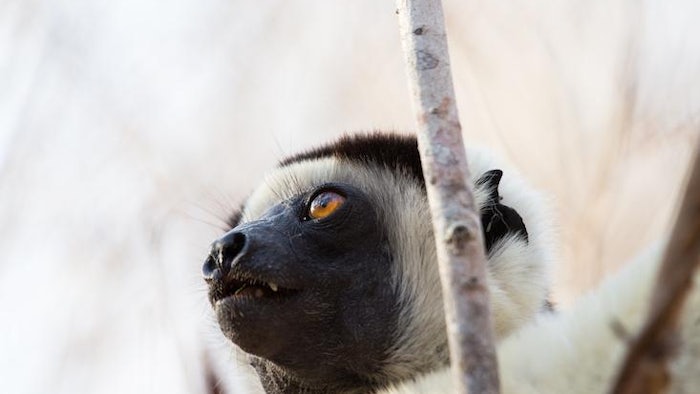
What If Only Females Could See Color?
Have you ever wondered how your life might be different if you could see beyond the visible light spectrum—into ultraviolet or infrared? For one thing, you might be immune, or less susceptible, to implicit racial bias. Inna Vishik, an applied physicist at U.C. Davis, says if you weren’t limited to the typical range of colors […]
-

This Man Is About to Blow Up Mathematics
Harvey Friedman is about to bring incompleteness and infinity out of quarantine.
-

How to Understand Extreme Numbers
The late statistics wizard Hans Rosling, who died this month at age 68, brought at least 10 toilet paper rolls to some of his beloved presentations. He would stack them into a tower on a table, each roll representing one billion people. In a 2012 talk at the Skoll World Forum, he used the rolls […]
-

Why Joel Osteen, “The Smiling Preacher,” Is So Darn Appealing
It’s hard to quantify charisma, but by any measure Joel Osteen has some pretty impressive stats. Every week, the man some call “The Smiling Preacher,” draws an estimated 43,500 individuals to his Lakewood Church, which he moved into a former professional basketball stadium just off Houston’s Highway 59 in 2005. Osteen’s weekly sermons are beamed […]
-
It’s Easy to Make Enemies of People We Only Read About
Last week, Marco Rubio, a United States senator from Florida, found himself in an unfamiliar position. He felt compelled to remind his more senior colleagues in the Senate of the value of rational debate. Word of this didn’t really catch on until The Washington Post, two days later, ran the headline: “Marco Rubio just gave […] -
Born Lucky: The Genetics of the Four-Leaf Clover
Each year, from 1913 to 1917, the psychologist Edmund S. Conklin would hand out a questionnaire to his new psychology students. Conklin wanted to see which superstitious habits or beliefs were the most and least enduring. He found that just over a quarter of college students believed in lucky four-leaf clovers, making it the second […] -
The Tangled History of Big Bang Science
Diagram outlining the critical stages of evolution of the Universe from the Big Bang to the present.CERN / Flickr Nautilus Members enjoy an ad-free experience. Log in or Join now . For a theory of the universe as successful as the Big Bang, it may come as a surprise to realize how many complications its […] -
When Climate Change Starts Wars
Rising temperatures are bringing ethnic tensions to a boil in Central Asia. -
The Man Who Played with Absolute Power
A chat with the creator of the Stanford Prison Experiment.
















